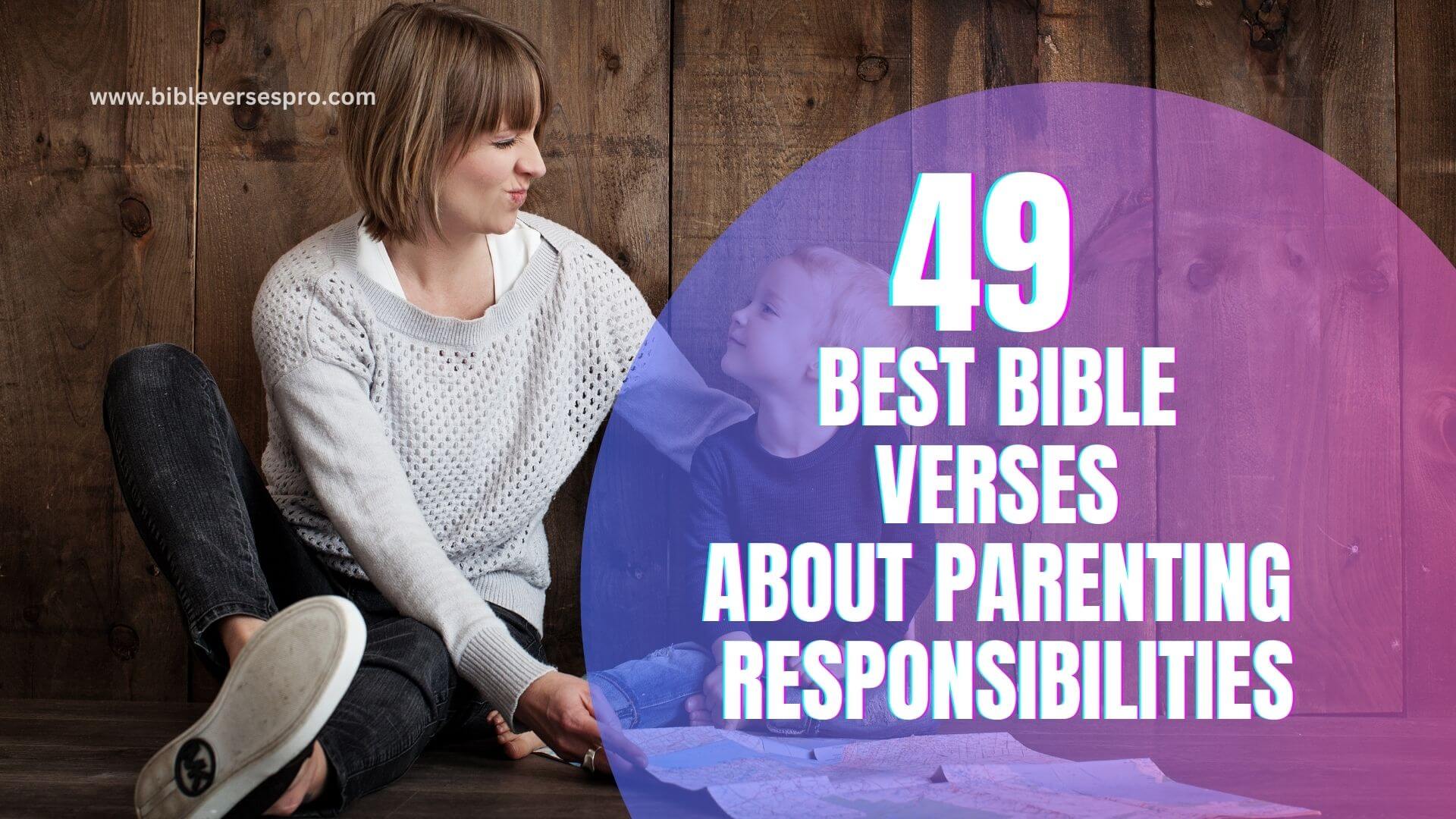The anchor stands for steadiness, security, and optimism during life’s storms.
There are four key allusions to anchors that appear throughout the scriptures; each one conveys a different message and offers helpful tips for overcoming the difficulties we encounter.
Join us as we examine these fou 4 anchors in the Bible and see how they can provide us with stability and comfort during trying times.
4 Anchors in the Bible
The unchanging promises of God are symbolized by this anchor. God’s promises offer stability in the midst of life’s uncertainties, much like an anchor keeps a ship steady in the face of rough seas.
1. Anchor For The Soul
The first anchor we come across is in Hebrews 6:19, where it is said that hope is a “anchor for the soul.”
These assurances provide us solace, courage, and comfort in knowing that God will be dependable no matter what. We discover the fortitude to face adversity and the hope to endure by securing our souls in God’s promises.
2. The Anchor of God’s Presence
The presence of God is a further potent pillar in the Bible. In Psalm 46:1, it says, “God is our refuge and strength, an ever-present help in trouble.” This anchor represents the unchanging presence of God in our life, providing consolation, fortitude, and security when we are in need.
Just as an anchor provides stability and security in a storm, God’s presence serves as our refuge. He is with us in every circumstance, offering His peace and guidance.
When we feel overwhelmed or discouraged, we can find solace in His presence, knowing that He will never leave us nor forsake us (Hebrews 13:5).
Moreover, the presence of God brings strength. His Spirit empowers us to persevere and overcome obstacles that come our way.
We can take refuge in Him, finding rest for our weary souls (Matthew 11:28). By anchoring ourselves in the assurance of His presence, we discover a source of unwavering strength and peace that sustains us through life’s challenges.
The Bible As The Anchor
The Word of God is the third anchor we discover in the Bible. The phrase “the grass withers and the flowers fall, but the word of our God endures forever” may be found in Isaiah 40:8.
This anchor stands for the steadfastness and dependability of God’s Word, which directs our steps and provides a solid basis for our life.
An anchor keeps a ship in place and stops it from drifting. Similar to how God’s Word gives us a firm foundation among life’s shifting sands. It provides us with knowledge, direction, and solace as it aids us in navigating the complexity of this world.
God’s Word is also a comforting and motivating resource. The assurances and promises found in Scripture can provide us comfort when we are experiencing doubt, anxiety, or despair.
According to the psalmist, “Your word is a lamp for my feet, a light on my path” (Psalm 119:105). It shows us the road, chases away the shadows, and gives us hope when things are bad.
We create a strong foundation that can survive life’s storms by firmly rooting ourselves in God’s Word.
It gives us the tools we need to handle difficulties, withstand pressure, and develop our connection with God. Scripture reveals the liberating force of God’s truth, which helps us to live victoriously and sets us free.
4. God’s Love: The Foundation
The love of God is the last anchor we examine. Paul, the author of Romans, states in verses 38 and 39, “For I am convinced that neither death nor life, neither angels nor demons, neither the present nor the future, nor any powers, neither height nor depth, nor anything else in all creation, will be able to separate us from the love of God that is in Christ Jesus our Lord.”
God’s love anchors our souls and gives us unwavering support and comfort, just like an anchor keeps a ship in place.
His devotion is unwavering, unconditional, and constant. It originates from His own nature and is not reliant on our actions or other factors.
The pillar of God’s love gives us comfort in knowing that our Creator loves and respects us. It serves as a reminder that we are never left in isolation or forgotten. God’s love endures despite our mistakes in the past and difficulties now. It offers hope, regeneration, and healing.
Jesus Christ is the most potent illustration of God’s love. The supreme manifestation of His love for people is the crucifixion. Christ’s sacrifice has made it possible for us to be at peace with God and to experience the depth of His love.
We can find the stamina to endure by firmly rooting ourselves in God’s love. He gives us the ability to love others and show them mercy and forgiveness.
It empowers us to battle sin, walk in freedom, and defeat fear. Knowing that God loves us makes us feel grateful and inspires us to behave in a way that demonstrates His love to the rest of the world.
Where Does The BibleTalk About Anchors?
The article’s anchors are based on biblical teachings and principles. They stand for the ideas and guidelines the Bible gives us for finding security and hope in God.
These parables express spiritual principles and offer direction for overcoming obstacles in life. Let’s look at a few bible verses that use metaphors relating to anchors:
1. According to Hebrews 6:19, “We have this hope as an anchor for the soul, firm and secure.” The metaphor of an anchor is used in the passage to represent the security and stability of our hope in God, even though it does not explicitly allude to a real anchor.
2. in Psalm 46:1 that “God is our refuge and strength, an ever-present help in trouble.” Although an anchor isn’t mentioned specifically, this verse suggests that God’s presence acts as a source of strength and sanctuary, much to an anchor that offers stability and security in the face of turmoil.
3. The grass withers and the flowers fade, but the word of our God endures forever, according to Isaiah 40:8. This verse emphasizes the enduring quality of God’s Word, implying that it can act as a stable foundation and guide in our lives, akin to the stability and security an anchor offers, even though it does not specifically mention anchors.
4. Romans 8:38–39 states, “For I am convinced that neither death nor life, neither angels nor demons, present or future, nor any powers, neither height nor depth, nor anything else in all creation, will be able to separate us from the love of God that is in Christ Jesus our Lord.”
This scripture does not mention an anchor specifically, but it underlines the indestructible and unfailing character of God’s love, which can act as an anchor for our souls through trying times.
What Are Examples Of Spiritual Anchors?
Spiritual anchors are the tenets, convictions, and behaviors that provide our spiritual lives constancy, security, and hope.
These anchors act as a solid base, giving us direction and assisting us in navigating the difficulties and uncertainties we face. Examples of spiritual anchors are as follows:
- Faith in God: For believers, faith is their main spiritual pillar. It entails placing faith in God’s existence, goodness, and promises. Even in the midst of trying situations, faith reassures us that we are not alone and that God is working for our good.
- Prayer and meditation: Through prayer and meditation, we can reach out to the divine and ask for direction, solace, and strength. We can develop our relationship with God, improve our ability to make decisions, and discover inner peace via these disciplines.
- The Bible is a spiritual compass that offers enduring wisdom, direction, and inspiration. We can better comprehend God’s purposes, gain knowledge from the experiences of others, and develop wisdom for navigating all facets of life through studying and reflecting on God’s Word.
- Community and Fellowship: Belonging to a caring spiritual community gives one a sense of responsibility and community. It provides chances for companionship, inspiration, and support of one another on our spiritual path.
- Worship and Praise: Worship and praise are strong spiritual moorings. It entails expressing thankfulness, recognizing God’s omnipotence, and developing a spirit of awe and reverence.
- Service and Kindness: Performing deeds of kindness and service for others expresses the compassion and love of God. It firmly establishes in our minds that we are called to enrich the lives of others and contribute to the prosperity of our communities.
- Developing an attitude of appreciation helps us to acknowledge God’s goodness and benefits in our life. It enables us to keep a good outlook and discover contentment no matter what the situation.
- Trust and Surrender: A powerful spiritual anchor is having faith in God’s omnipotence and submitting our will to His direction.
It enables us to relinquish control, experience His transforming grace, and find calm in turbulent circumstances.
These are only a few instances of spiritual anchors that can provide our spiritual lives stability, security, and optimism.
What Are The 5 Types Of Achor In The Bible?
In the Bible, the concept of “anchor” is often used metaphorically to symbolize various aspects of faith, hope, and stability.
While there may not be an explicit categorization of “types” of anchors in the Bible, we can identify five significant symbolic representations that highlight the concept of an anchor. These include:
- Anchor as Hope: The anchor symbolizes hope in Hebrews 6:19, which describes it as an “anchor for the soul.” This imagery signifies the unwavering confidence and assurance believers have in God’s promises. Just as a physical anchor secures a ship amidst storms, hope in God anchors our souls, providing steadfastness and resilience in the face of trials.
- Anchor as Faithfulness: In the Old Testament, God’s faithfulness is often likened to an anchor. For example, Lamentations 3:21-24 portrays God’s steadfast love and faithfulness as an anchor of hope, enabling believers to find security and trust in Him even in times of adversity.
- Anchor as Stability: The concept of an anchor is associated with stability and unmovable foundation. In Ephesians 4:14, believers are encouraged to be grounded in their faith, avoiding being “tossed to and fro” like waves. This metaphor emphasizes the importance of anchoring ourselves in God’s truth and principles to maintain spiritual stability.
- Anchor as Salvation: The anchor can symbolize the assurance of salvation in Christ. In Hebrews 6:19, it is described as entering “the inner place behind the curtain” – a reference to the Holy of Holies in the temple. This image portrays Christ as our anchor, providing access to eternal salvation and an unbreakable connection with God.
- Anchor as Deliverance: The anchor can also represent deliverance from the storms of life. In Acts 27:29, during a shipwreck, the sailors cast four anchors to secure the ship and prevent it from running aground. This episode demonstrates the idea that God’s presence and protection serve as our anchor, ensuring our safety and deliverance from the perils we face.
What Does An Anchor Symbolize?
A symbol with multiple connotations in diverse contexts and civilizations is the anchor. Here are some frequent ways that anchors are represented symbolically:
- Stability and Security: Stability and security are an anchor’s two main symbolic meanings. An anchor symbolizes a firm base that keeps us grounded and prevents us from wandering in the currents of life, just as an anchor holds a ship in place. It denotes a sense of security, resilience, and stability in the face of difficulties.
- Hope and optimism are frequently connected with the anchor. The anchor symbolizes the hope that there is something substantial to hang onto, a promise of brighter days ahead, in the midst of storms and choppy waters. It serves as a reminder to hold fast to hope even under trying circumstances.
- An anchor represents strength and endurance, particularly in the face of difficulty. It reminds us of our inner fortitude to weather the storms of life and symbolizes our capacity to withstand the pressures that aim to sway us off our course.
- The anchor can stand for faith and trust in a deity or in a particular religious system. It stands for the confidence that we are being guided and supported by someone bigger. The anchor serves as a reminder to have faith, have confidence in God, and give up control for a greater good.
- Navigation and Guidance: The anchor represents direction and guidance in a navigational environment.
It stands for the capacity to locate ourselves, maintain our course, and navigate through the challenges of life. The anchor serves as a gentle reminder to seek advice and maintain our sense of purpose.
Conclusion :
The Bible has four important Anchors: God’s promises, God’s presence, God’s Word, and God’s love.
In the midst of life’s storms, these anchors give us security, hope, and stability. We find the power and comfort necessary to overcome our obstacles by encircling our spirits with these timeless truths.
May we cling to these anchors while relying on God’s fidelity and finding security and hope in His unwavering love.







